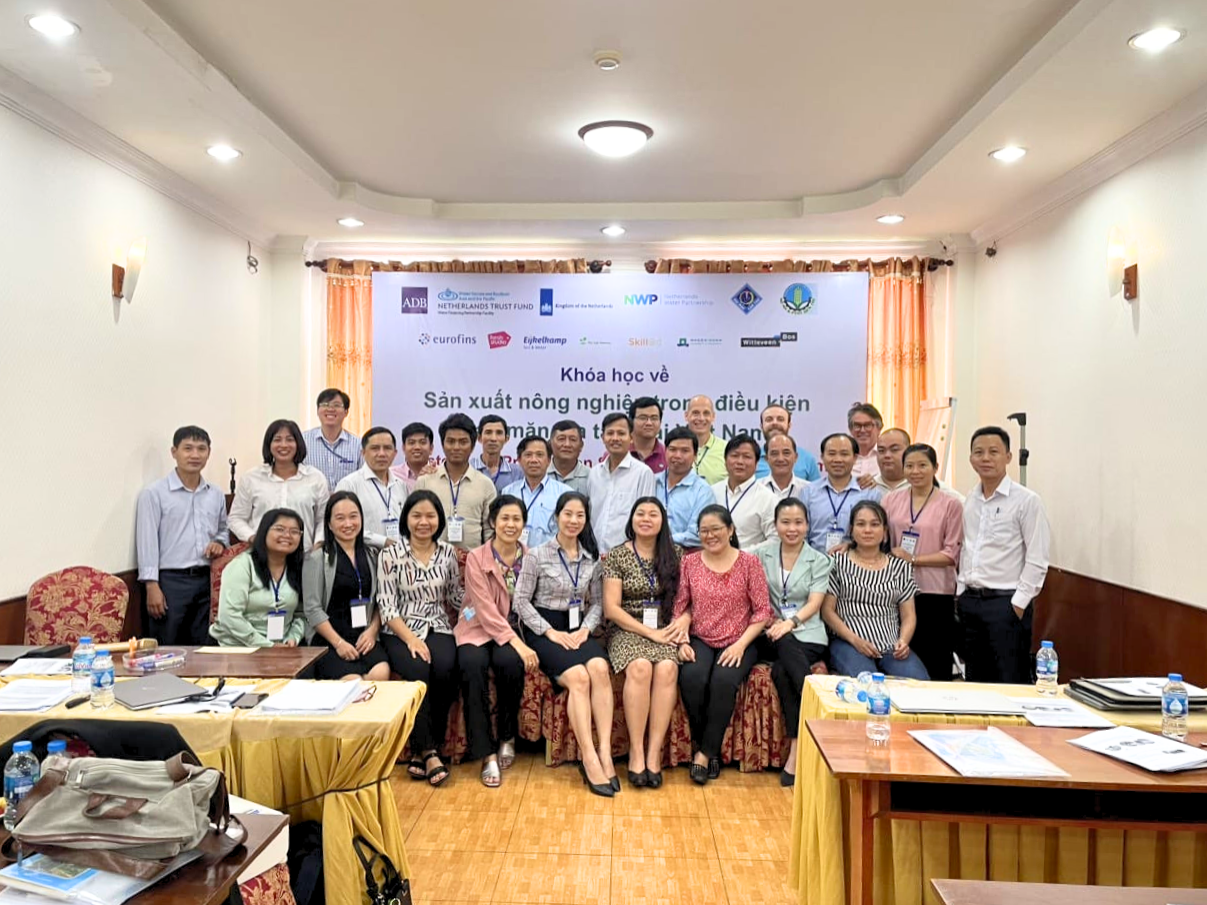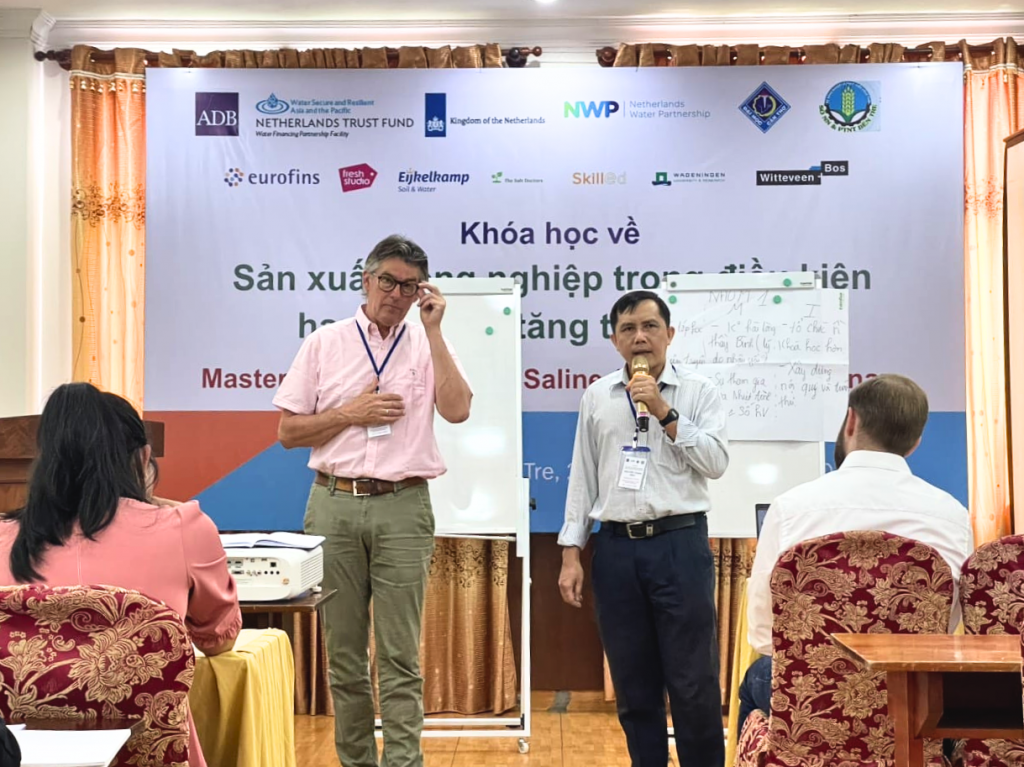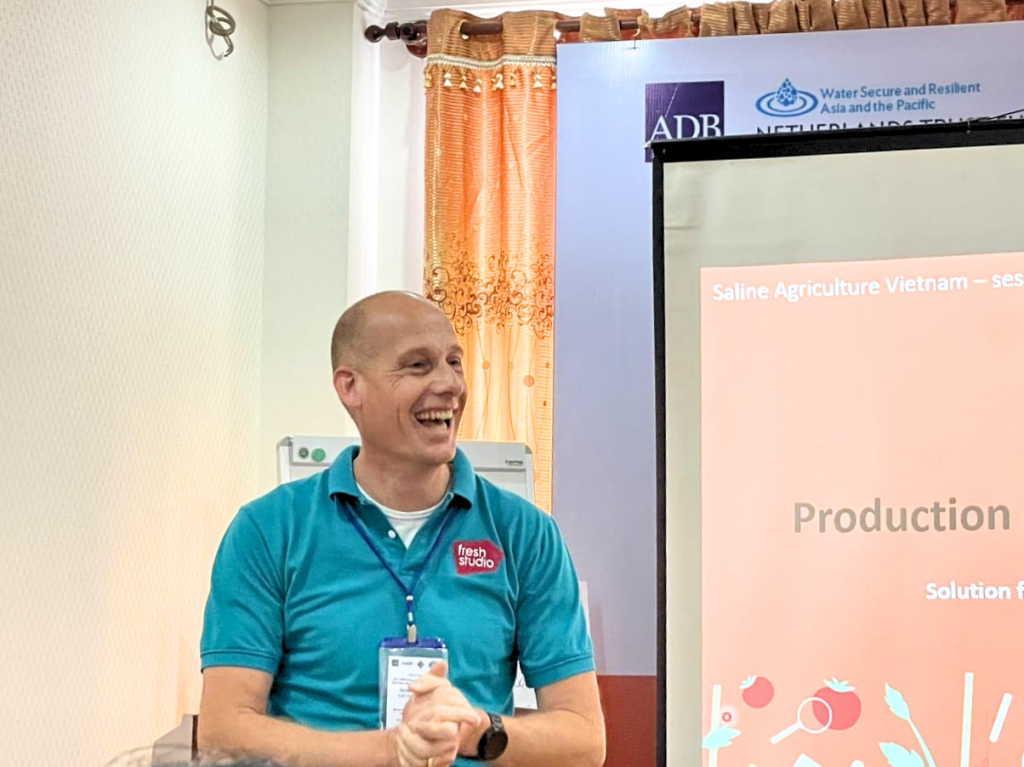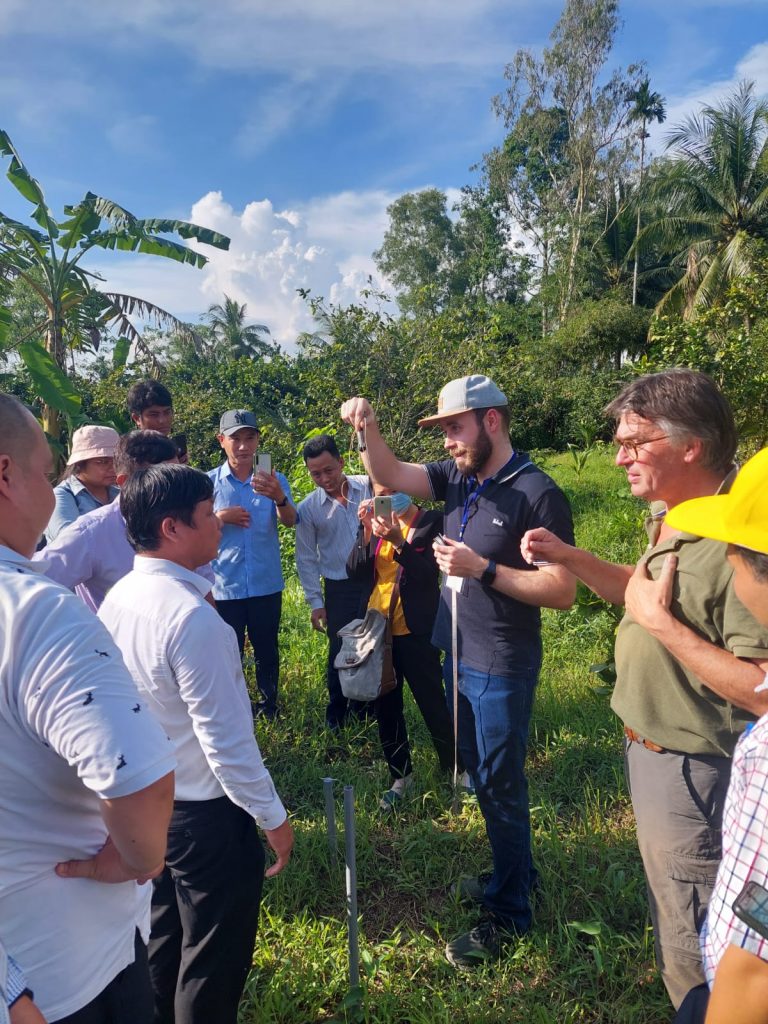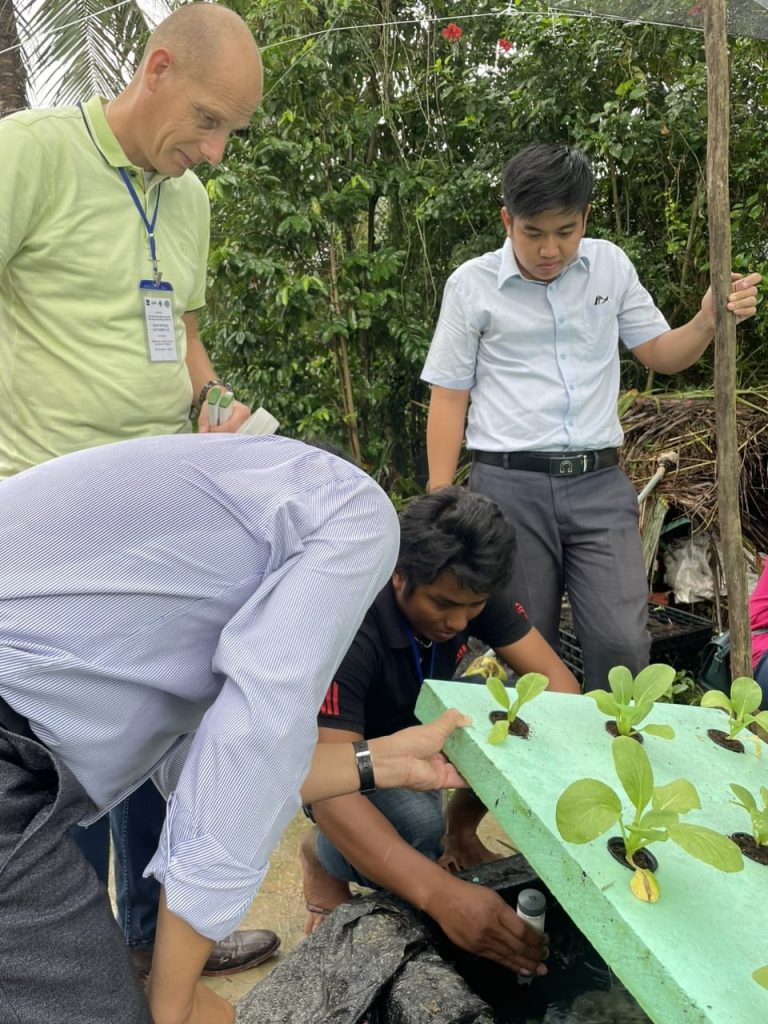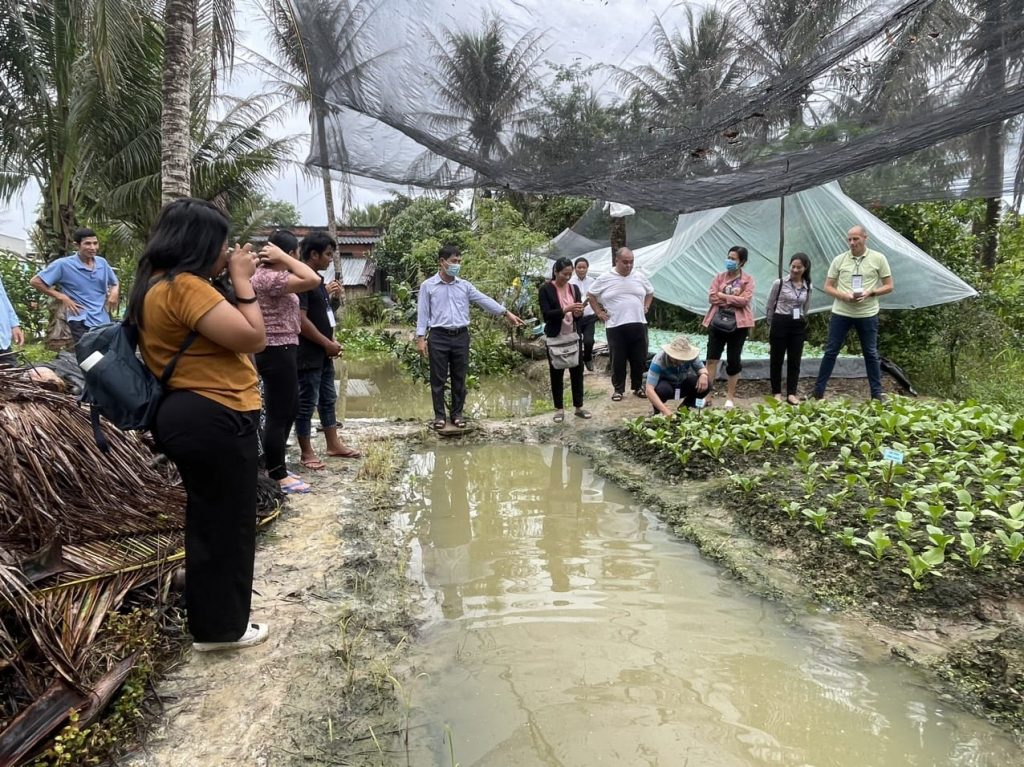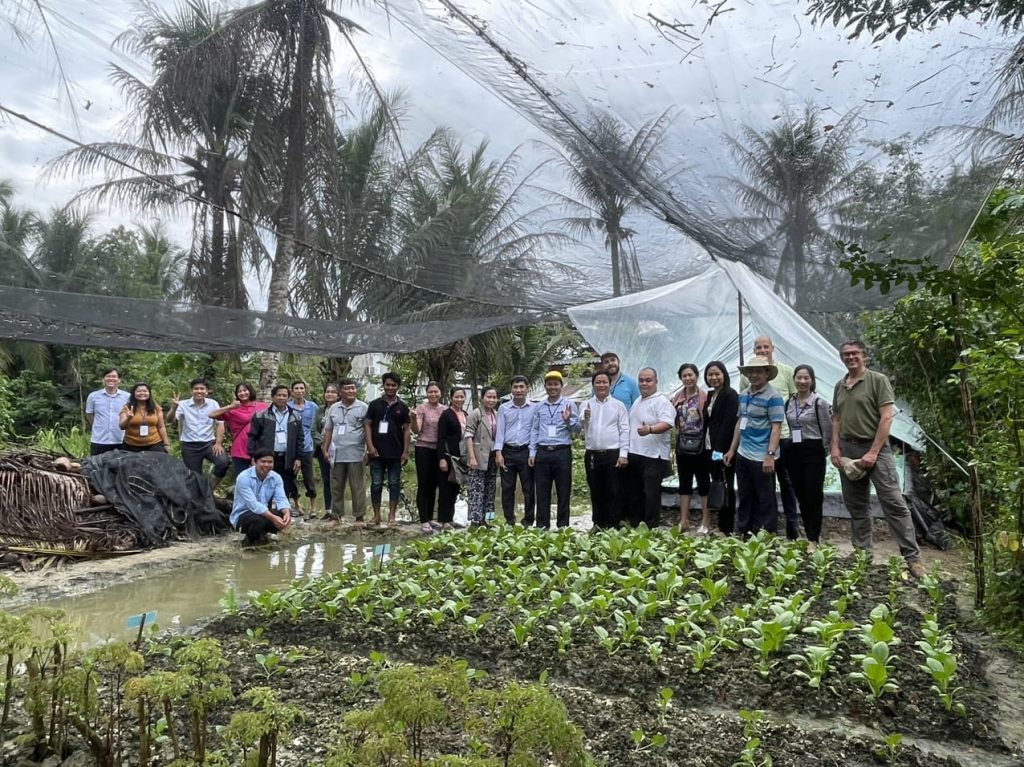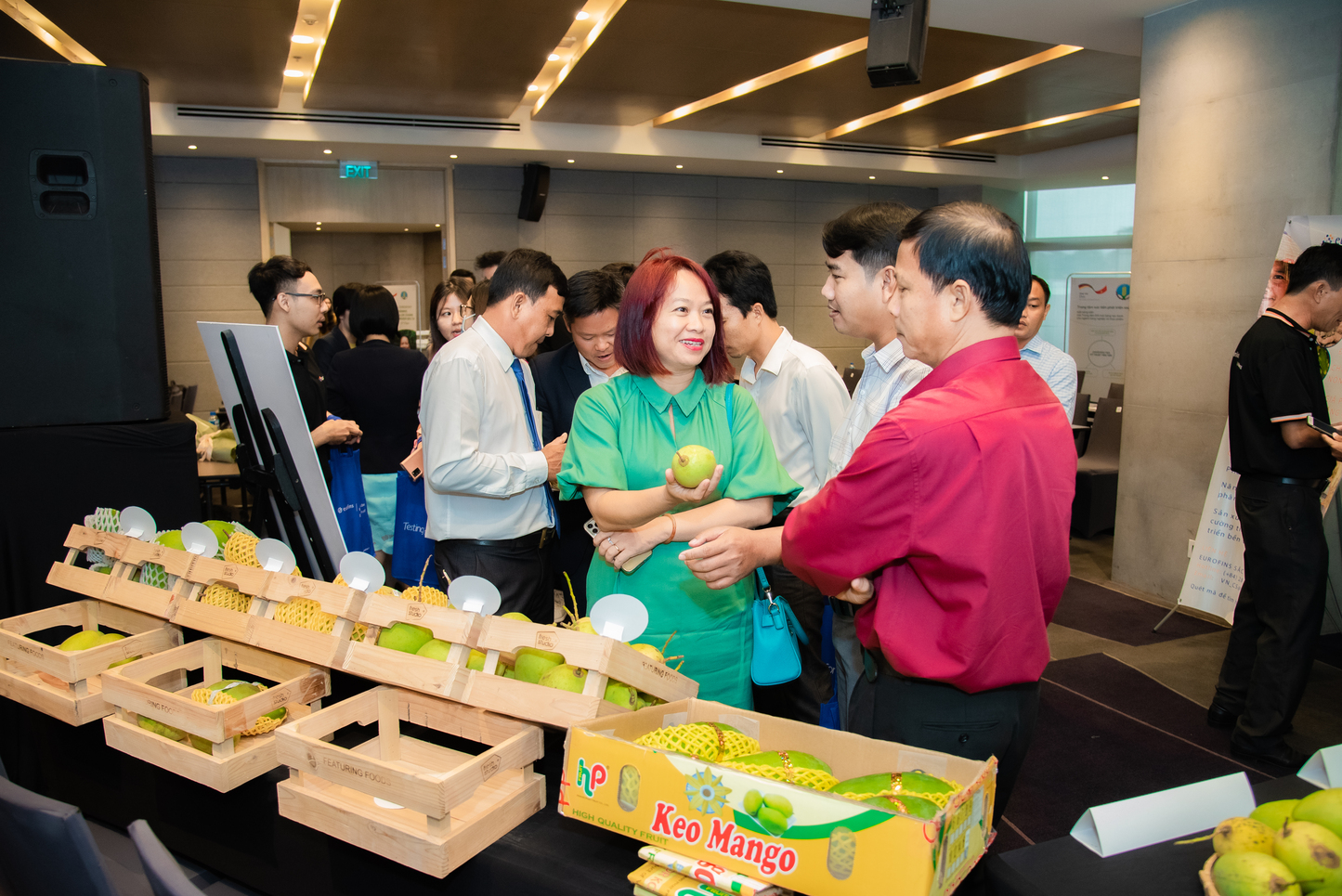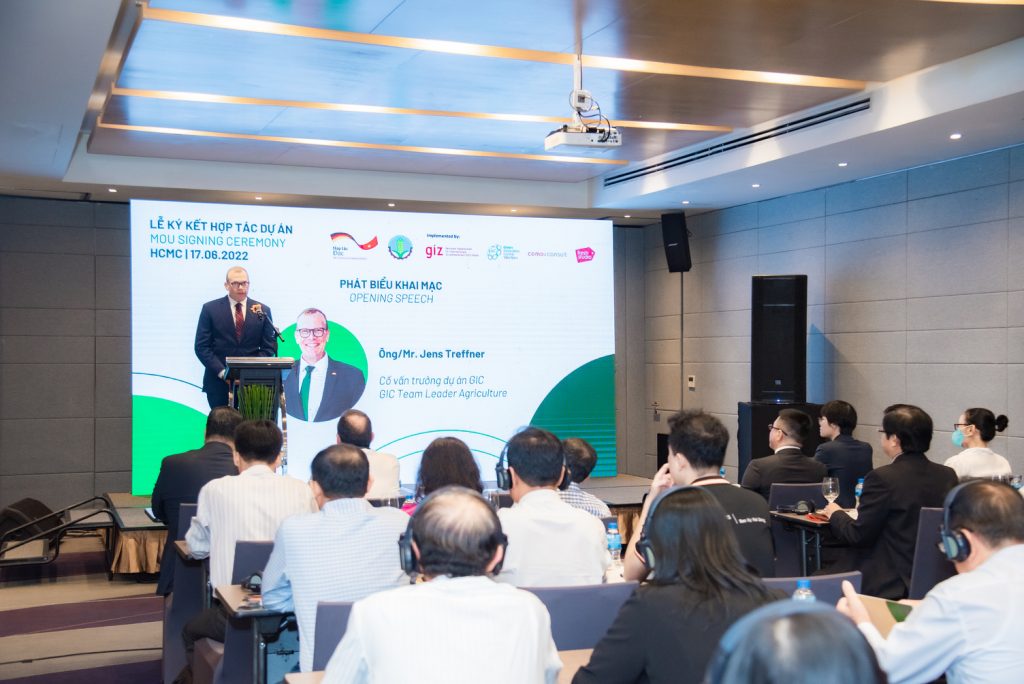As a project partner Fresh Studio was pleased to be one of the trainers during the second Masterclass Saline Agriculture funded by ADB.
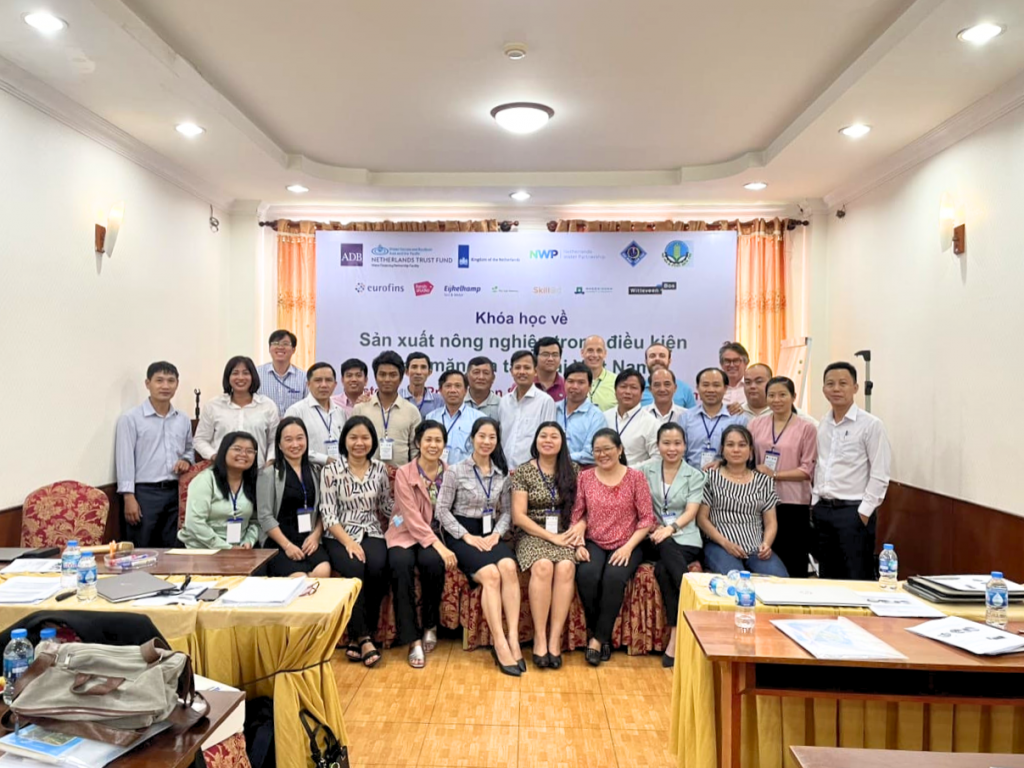
The training was organized in Ben Tre, where increasing salinity levels have a major impact on the local agricultural sector. Besides Ben Tre increasing salinity levels are a major issue along the coastal areas of the Mekong Delta. It is an important topic to address as it impacts millions of people depending on their livelihood production agricultural products in the region affected by the intrusion of salt water.
During the Masterclass Saline Agriculture, various innovative solutions to prevent and manage salt intrusion and production technologies enabling agriculture production under saline conditions were discussed.
With its extensive experience in Vietnam and horticulture production systems Fresh Studio trained the participants in production systems for tropical fruits and vegetables growing out of the soil and the economics to consider making an investment in such production system.
A third and final masterclass is planned for the end of November 2022.
The project partners of the project: Masterclass Saline Agriculture are:
- Netherlands Water Partnership (NWP)
- Mekong Delta Development Research Institute / Can Tho University (MDI/CTU)
- Wageningen University
- Nong Lam University
- Southern Fruit Research Institute (SOFRI)
- Southern Institute for Water Resources Research
- Wageningen University & Research
- The Salt Doctors
- Witteveen+Bos
- Eijkelkamp Soil & Water
- Fresh Studio
- Eurofins
- SkillEd
- Fresh Studio

